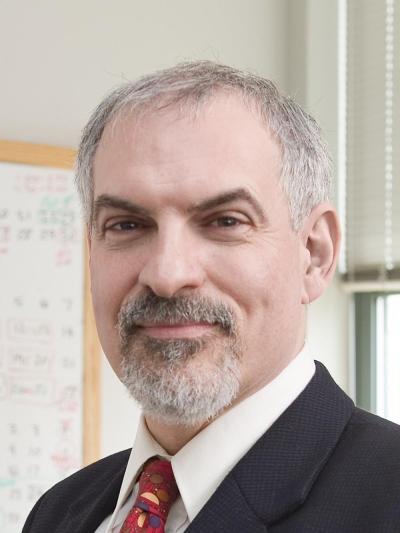Web Link(s)
Myers Among Four CMU Faculty Members Named IEEE Fellows

Four Carnegie Mellon University faculty members have been named 2013 Fellows of the Institute for Electronic and Electrical Engineers (IEEE), the world’s largest technical professional association.
David Garlan, professor of computer science; James C. Hoe, professor of electrical and computer engineering; Radu Marculescu, professor of electrical and computer engineering; and Brad A. Myers, professor in the Human-Computer Interaction Institute, are among 298 individuals who will be elevated to IEEE Fellows, recognized by the technical community as a prestigious honor and an important career achievement.
Garlan, director of software engineering professional programs and a faculty member in both the Institute for Software Research and Computer Science Department, was cited by the IEEE “for contributions to software architecture.” He is widely recognized as a pioneer in the systematic study of the large-scale structure of software systems. This work helped establish a research community in software architecture as well as methods that have become standard in the engineering of large-scale software systems.
Previous honors include a 2005 Stevens Award Citation and the 2011 Outstanding Research Award from the Association for Computing Machinery’s Special Interest Group on Software Engineering. He earned his Ph.D. in computer science at CMU in 1987.
Hoe, a professor and associate head of CMU’s Electrical and Computer Engineering Department, was cited for contributions to high-level hardware design and synthesis.
For more than 14 years, Hoe has actively researched languages and tools to support hardware design and synthesis from a high-level of abstraction. His current research is devoted to devising a new FPGA architecture for power efficient, high-performance computing. Other significant research efforts occupy the intersection of reconfigurable logic and computer architecture. Hoe earned his Ph.D. in electrical engineering and computer science from the Massachusetts Institute of Technology in 2000.
Marculescu, a professor in the Electrical and Computer Engineering Department whose research focuses on analysis and optimization of embedded systems, systems-on-chip, networks-on-chip, low-power and cyber-physical systems, was cited for his contributions to the design and optimization of on-chip communication for embedded multicore systems. His work aims to creatively apply various theoretical approaches to build better systems that range from multiprocessor systems-on-chip for embedded and high performance computing, to implantable devices and bacteria-based systems for health care applications.
Marculescu was awarded the National Science Foundation’s Career Award for the “System-Level Power/Performance Analysis for Embedded Systems Design” in 2010. In recent years, he also has received best paper awards from the IEEE and major conferences in the areas of systems design, design automation and multicore design. He received is Ph.D. in electrical engineering from the University of Southern California in 1998.
Myers, who has been a consultant on user interface design and implementation to more than 75 companies and regularly teaches courses on user interface design and software, was cited by the IEEE “for development of software tools for human-computer interaction.” The principal investigator for the Natural Programming Project, he has developed tools that make it easier for people to write and debug computer programs. He also directed the Pebbles Handheld Computer Project, which explored how handheld computers, such as smartphones, interact with people and with other digital devices.
Earlier this year, a 2002 paper Myers co-authored on developing easy-to-learn programming systems was recognized by the IEEE Symposium on Visual Languages and Human-Centric Computing as the joint winner of the Most Influential Paper of one decade ago. He joined Carnegie Mellon’s Computer Science Department in 1987 after earning a Ph.D. in computer science at the University of Toronto and joined the HCII faculty in 1995.

